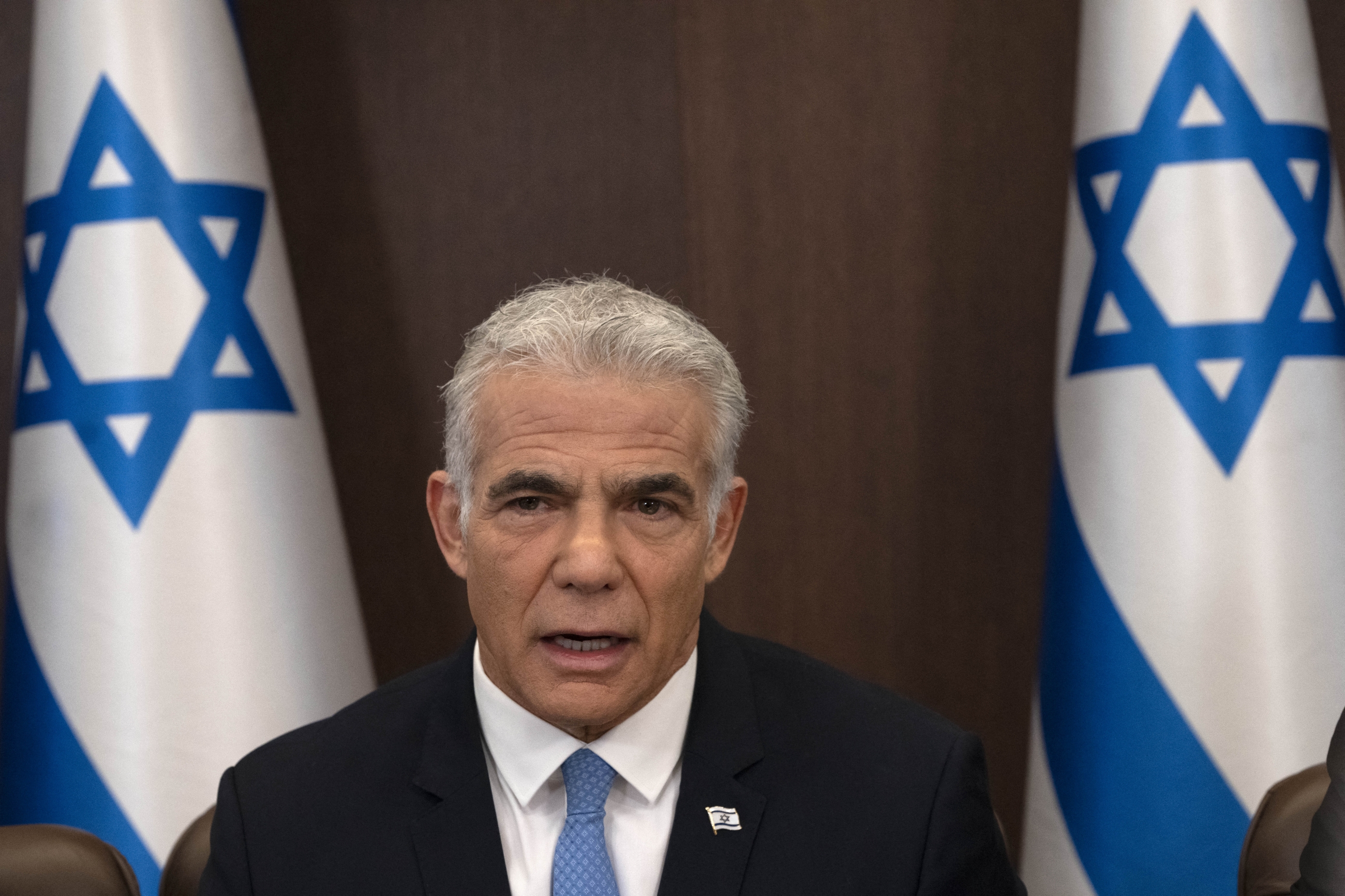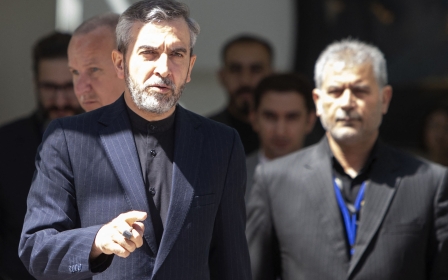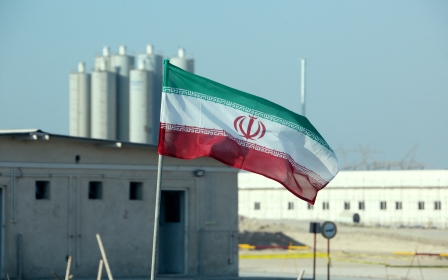Israel tells West it's time to 'walk away' from nuclear talks

Israel has told Western countries to "walk away" from nuclear talks with Iran after Tehran failed to respond to a yes or no ultimatum on the text of an EU proposal to revive the dormant 2015 accord.
Israeli Prime Minister Yair Lapid told German Chancellor Olaf Scholz in a phone call on Thursday that ”the Europeans sent Iran a final offer... and they declared that this offer was take it or leave it".
“Iran refused the offer and therefore the time has come to walk away. Anything else sends a message of weakness," Lapid said, according to an Israeli diplomat who spoke with AFP.
Red lines
Also on Thursday, Lapid held a meeting with the US ambassador to Israel where he said that the EU draft proposal being discussed was in opposition to the red lines set out by the Biden administration when talks resumed.
“In the current situation, the time has come to walk away from the table. Anything else sends a message of weakness to Iran,” Israeli Prime Minister Yair Lapid told the US diplomat and congressman Ted Deutch, chairman of the US House Foreign Affairs Committee’s Middle East Subcommittee.
Talks to revive the 2015 accord have now dragged on for 16 months.
On 26 July, in an effort to finish negotiations the EU submitted a "final" compromise and called on Tehran and Washington to provide a "yes or no" answer by Monday.
The US response has not been made public. On Wednesday State Department spokesman Ned Price said, “we’re making our views known privately and directly to the EU".
Tehran replied by neither accepting nor rejecting the draft. It is seeking assurances that it would be protected from economic sanctions if the US decides to unilaterally withdraw from the deal again.
Oil prices dropped three percent on Tuesday, partly amid anticipation that the two sides were inching closer to a deal that would free up Iranian crude for the international market.
However, analysts and observers have expressed caution. "Our view continues to be that a deal is still unlikely in the short term," experts at investment firm Goldman Sachs said in a note that emphasised both sides might prefer the grey zone of no deal, without calling off talks.
"An announcement by Iran indicating a willingness to entertain nuclear talks is likely intended to draw out further ongoing discussion in our view before more disruptive counter-measures are potentially taken by the US and its allies," the Goldman Sachs experts said.
Oil shortage
"The US is similarly incentivized to draw out negotiations given stricter sanctions enforcement would exacerbate the oil shortage.”
However, Israel’s move on Thursday to try and deter a return to the deal may indicate its fear that Tehran and Washington are moving closer to reviving the accord.
Israel, along with US Gulf Arab allies, opposed the 2015 deal.
The previous government of Benjamin Netanyahu publicly slammed the deal in 2015, straining the relationship.
When Prime Minister Naftali Bennet came to power in 2021 he promised that Israel would communicate its differences to Washington on Iran more privately. Lapid replaced Bennet earlier this year in a power-sharing agreement.
Israel has repeatedly said that a nuclear deal will not stop it from taking action against Iran.
The country frequently targets Iranian proxies in Syria and the wider region. Israel is believed to be behind a series of assassinations and acts of sabotage aimed at hindering Iran’s nuclear program.
Israel's National Security Council head, Eyal Hulata, is expected to visit the US next week to discuss the nuclear deal with US officials.
Middle East Eye propose une couverture et une analyse indépendantes et incomparables du Moyen-Orient, de l’Afrique du Nord et d’autres régions du monde. Pour en savoir plus sur la reprise de ce contenu et les frais qui s’appliquent, veuillez remplir ce formulaire [en anglais]. Pour en savoir plus sur MEE, cliquez ici [en anglais].





